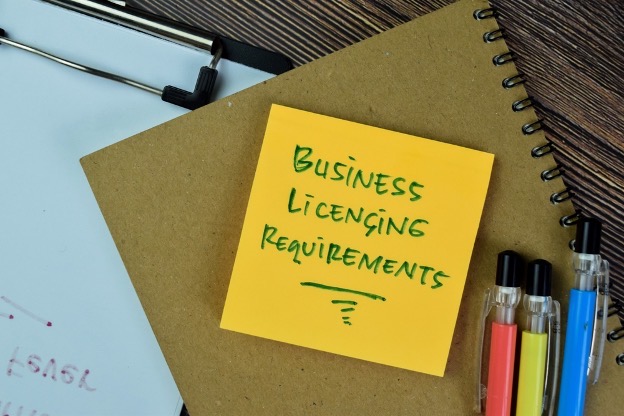Legal and Licensing Requirements
Setting up a collection company involves complying with various legal and licensing requirements. While the specific requirements may vary depending on your jurisdiction, here are some common considerations:
- Business Registration: Register your collection company as a legal entity with the appropriate government authorities. Choose a business structure, such as a sole proprietorship, partnership, limited liability company (LLC), or corporation, and follow the registration process according to your jurisdiction’s requirements.
- Obtain Necessary Licenses: Determine the licenses and permits required to operate a collection agency in your jurisdiction. Research and understand the licensing requirements specific to debt collection activities.
- Compliance with Debt Collection Laws: Familiarize yourself with debt collection laws and regulations applicable to your jurisdiction. Understand the legal framework governing debt collection practices, including consumer protection laws and regulations.
- Bonding and Insurance: Some jurisdictions may require collection agencies to obtain a surety bond or maintain liability insurance.
- Compliance Management: Develop robust compliance management policies and procedures to ensure adherence to applicable laws and regulations. Establish practices for employee training, documentation, record-keeping, and complaint resolution.
- Data Protection and Privacy: Ensure compliance with data protection and privacy laws, such as the General Data Protection Regulation (GDPR) in the European Union or similar regulations in other jurisdictions.
- Regulatory Reporting: Determine if regulatory authorities impose any reporting requirements. This may include submitting periodic reports, financial statements, or other documentation to demonstrate compliance and maintain your license.
- Legal Compliance Documentation: Maintain accurate and up-to-date documentation related to your legal compliance efforts. This includes policies and procedures manuals, employee training records, complaint logs, and any other relevant documentation regulators require.
- Ongoing Compliance Monitoring: Continuously monitor changes in laws and regulations affecting the debt collection industry.

Developing a Business Plan and Operational Framework
A business plan and operational framework serve as a roadmap for your business’s success. It should be well-researched, realistic, and flexible enough to adapt to changing circumstances. Developing a business plan and operational framework is essential for defining your business’s goals, strategies, and processes. Debtreps will give you some key steps to consider:
- Executive Summary: Provide an overview of your business, its mission, vision, and key objectives. Summarize the main points of your business plan, including your target market, competitive advantage, and financial projections.
- Company Description: Describe your business, including its legal structure, ownership, location, and history. Explain your products or services, target market, and unique value proposition that differentiates you from competitors.
- Market Analysis: Conduct thorough market research to understand your target market, customer needs, and industry trends.
- Organization and Management: Outline the structure of your organization, including key roles and responsibilities. Describe the backgrounds and expertise of your management team and key personnel.
- Product or Service Line: Provide a detailed description of your offerings and how they meet customer needs. Explain the features, benefits, and pricing strategy of your products or services.
- Marketing and Sales Strategy: Define your marketing and sales approach. Identify your marketing channels, promotional activities, and pricing strategy.
- Financial Projections: Develop a financial plan that includes projected income statements, cash flow statements, and balance sheets. Estimate your revenue, expenses, and profitability over a specific period. Include a break-even analysis and funding requirements if applicable.
- Operations and Production: Describe how your business will operate daily. Outline your production processes, supply chain management, quality control measures, and inventory management strategies.
- Risk Assessment and Mitigation: Identify your business’s potential risks and challenges. Assess their potential impact and develop strategies to mitigate or minimize these risks.
- Implementation Plan: Outline the steps and timeline for executing your business plan. Set specific goals, milestones, and performance indicators to track progress.
- Legal and Regulatory Considerations: Ensure compliance with all applicable laws, regulations, and licensing requirements. Seek legal advice to address any legal or intellectual property issues specific to your industry.
- Review and Update: Regularly review and update your business plan to reflect changes in the market, industry trends, and internal factors.

Building a Team and Hiring Personnel
Building a team and hiring personnel is a critical process that can significantly impact the success of your organization. Debtreps has a list of steps to consider when building a team and hiring personnel:
- Define Your Team’s Needs: Clearly identify the roles and responsibilities required to achieve your organization’s goals. Determine the skills, qualifications, and experience needed for each position.
- Create Job Descriptions: Develop comprehensive job descriptions that outline the key responsibilities, qualifications, and expectations for each role. Be specific about the required skills, educational background, experience, and any additional preferences.
- Source Candidates: Utilize various sourcing channels to attract potential candidates. This may include posting job openings on your website, online job boards, and professional networking platforms and utilizing recruitment agencies or headhunters.
- Conduct a Structured Interview Process: Design an interview process that assesses candidates’ skills, qualifications, and cultural fit. Develop a set of standardized interview questions that help you evaluate candidates consistently.
- Assess Soft Skills and Cultural Fit: While technical skills and qualifications are important, also evaluate candidates’ soft skills, such as communication, teamwork, problem-solving, adaptability, and leadership potential.
- Check References and Conduct Background Checks: Contact the references provided by the candidates to verify their qualifications and performance.
- Consider Skills Testing and Assessments: Depending on the nature of the roles, consider using skills tests or assessments to evaluate candidates’ abilities in specific areas.
- Offer Competitive Compensation and Benefits: Determine a competitive compensation package based on industry standards, the candidate’s experience, and the role’s responsibilities.
- Onboarding and Training: Once you have selected candidates, develop an onboarding process to help them integrate smoothly into your team and organization.
- Foster a Positive Work Environment: Building a strong team requires creating a positive work environment that promotes collaboration, open communication, and employee engagement.

Implementing Effective Collection Strategies and Techniques
Effective collections strategies require a balance between assertiveness and maintaining positive customer relationships, so approach each case with professionalism and empathy. Effective collection strategies and techniques require careful planning, proactive communication, and efficient processes. Here are some key steps to consider:
- Establish Clear Policies and Procedures: Develop a comprehensive collections policy that outlines your organization’s expectations, processes, and guidelines for collecting outstanding debts.
- Conduct Thorough Customer Credit Checks: Before extending credit to customers, perform credit checks to assess their financial stability and creditworthiness.
- Maintain Accurate and Up-to-Date Records: Keep detailed records of all transactions, invoices, and customer communication. Accurate records are crucial for tracking payment statuses, identifying overdue accounts, and providing evidence if legal action becomes necessary.
- Implement a Consistent Communication Strategy: Establish a structured approach to communicate with customers regarding their outstanding balances. Clearly define the frequency and channels of communication, and ensure that you maintain a professional and respectful tone throughout the process.
- Early Intervention and Reminders: Implement a system to send reminders and follow-ups for overdue payments as soon as they become due.
- Offer Flexible Payment Options: To facilitate faster payments, offer customers various payment options, such as online payment portals, credit card payments, direct debit, or installment plans.
- Establish Negotiation and Settlement Procedures: In cases where customers are unable to pay the full amount, establish a process for negotiating and settling outstanding balances.
- Escalate Collection Efforts: If initial communication and reminders do not yield results, escalate the collection efforts by involving supervisors, managers, or specialized collection teams.
- Utilize Collection Software or Services: Consider implementing collection management software or outsourcing collection services to specialized agencies.
- Legal Action as a Last Resort: If all efforts to collect payment fail, consult with legal professionals to explore legal remedies such as filing lawsuits, obtaining judgments, or engaging in debt recovery proceedings.
Compliance and Regulatory Considerations
Compliance and regulatory considerations are crucial aspects of running a business. Failing to comply with applicable laws and regulations can result in legal issues, financial penalties, reputational damage, and operational disruptions. Here are some key areas to consider:
- Business Licensing and Permits: Determine the licenses and permits required to operate your business legally. Research federal, state/provincial, and local regulations to identify the necessary permits for your industry and location.
- Employment Laws: Understand and comply with employment laws and regulations to protect your employees’ rights and maintain a healthy work environment.
- Tax Compliance: Familiarize yourself with tax laws and requirements related to income tax, sales tax, payroll taxes, and any other applicable taxes.
- Data Protection and Privacy: If your business collects and handles personal data, ensure compliance with data protection and privacy laws. Understand the requirements related to data storage, consent, security measures, and data breach notification.
- Intellectual Property Protection: Safeguard your intellectual property rights by understanding and complying with intellectual property laws.
- Consumer Protection Laws: Comply with consumer protection laws that govern fair business practices, product labeling, advertising, warranties, and customer rights.
- Environmental Regulations: Understand and comply with environmental regulations and standards applicable to your industry. This may involve obtaining permits for waste management, emissions control, or adhering to specific environmental practices.
- Financial Regulations: If your business deals with financial transactions or investments, familiarize yourself with applicable financial regulations, such as anti-money laundering (AML) laws, securities regulations, or banking regulations.
debtreps.com
